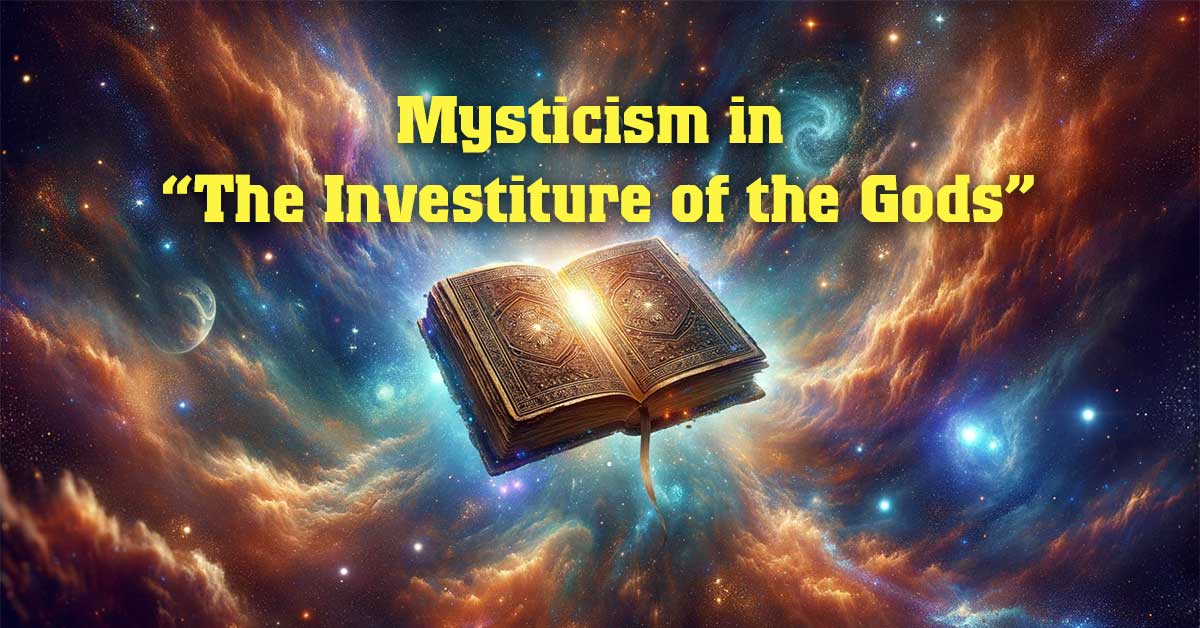Yun Zhong Zi is an Immortal residing in Chung-Nam Mountain. One day, while gathering herbs, he noticed an evil aura rising from the southeast, and he deduced that a fox spirit had possessed a human body to carry out malevolent deeds. He thought, “My practice of cultivation is meant to serve humanity. If I do not expel this demon for the sake of the people, much suffering will ensue.” He immediately summoned his disciple, Kim-Ha, and instructed him to find a dry pine branch to craft a sword for banishing the demon. Afterward, he went to the court to request an audience with King Zhu.
Yun Zhong Zi greeted the King without the customary bow, which irritated the monarch. However, the King found Yun Zhong Zi’s unconventional ideas intriguing and directed a seat to be provided beside him.
Yun Zhong Zi accepted the seat without ceremony and commented, “This is fitting. Did you know that just as the throne holds honor, so do the three religions—Confucianism, Taoism, and Buddhism? How can one overlook this?”
The king inquired, “Explain to me the honor of Taoism.”
“The Taoist engages in discussions about the Way with his Immortal guests. He enjoys drinking and reciting poems, sharing laughter and conversation freely with friends without reservation. He harbors no fear of offending. Delving into the rise and fall of generations and researching the soul’s origins, he remains unperturbed by the passage of time across the four seasons. Capable of reversing the aging process and revitalizing his body, he aids others with medicinal herbs from the forest. Utilizing divination arts, he foresees fortune and misfortune, discerning the true nature of individuals’ hearts to predict their fate. He imparts the Way to save the world and wards off ghosts and demons with charms and spells. The depth of Taoism inspires fear even in tigers and dragons, while the virtuous earn respect from both demons and gods. Riding upon the white crane, he journeys to the Fairy Lands, comprehending the sacred mechanism of creation and exploring the Way and Virtue of celestial beings.”
King Zhou, pleased with Yun Zhong Zi’s words, inquired, “What counsel do you offer me then?”
Yun Zhong Zi replied, “I sensed the presence of a demon’s aura in Zhaoge. Upon arriving here, I detected it emanating from your palace. Thus, I urge Your Majesty to eliminate the demon to safeguard the people.”
“How should I go about slaying this demon?” asked the King.
“It’s simple. Your Majesty merely needs to hang this wooden sword within your palace. The demon will surely perish,” Yun Zhong Zi advised. King Zhou promptly instructed a court servant to hang the sword above the doorway of the Longevity Palace.
Upon his return to the Longevity Palace from the court, King Zhou felt unsettled by the absence of Daji, who typically welcomed him. As he pondered this, an internal official approached and delivered grave news: “Imperial Beauty, Lady To, is severely ill. She lies in bed, seemingly unconscious.” Alarmed, King Zhou quickly disembarked from his carriage, hastened into the chamber, and drew back the curtain. There, he found Daji with pallid eyes, lips as white as paper, and struggling to breathe.
Summoning all her strength, Daji managed to open her eyes and spoke with difficulty, “This morning, I accompanied Your Majesty to the Court. As it was time for your return, I went out to greet you. However, upon reaching the Longevity Palace, I was startled to see a sword hanging there. I broke into a profuse sweat and fell gravely ill.” King Zhou, suspecting that the Taoist had used dark magic to harm Daji, ordered the immediate removal and burning of the sword. As the sword was destroyed, Daji gradually regained her health, and her beauty was fully restored.
Meanwhile, Yun Zhong Zi remained in the capital and witnessed once again the ominous aura emanating from the royal palace. Perplexed, he employed divination techniques and discerned the truth of the situation. Reflecting on the events, he realized, “I intended to use the magical sword to vanquish the demon and aid the Shang Dynasty.
However, fate has intervened, and its destruction signifies a predetermined outcome. The Gods and Immortals are now destined to face calamity.” He then inscribed a prophetic poem on the wall:
“When a demon disrupts the royal court,
The virtue of the Saints will thrive in the West.
From the Year of the Mouse to the Year of the Horse,
Bloodshed will mar the capital.“
Those who considered themselves intelligent and learned assembled to read the poem, exerting great effort to comprehend its meaning. However, despite their endeavors, none could unravel its message.
Commentary
Those who uphold righteousness invariably oppose those who embody evil. When Yun Zhong Zi discovered that a fox spirit had possessed a human to commit malevolent acts, he immediately sought to eliminate it by fashioning a pine branch into a magical sword. But why did the wooden sword, once placed in the palace tower, cause Daji to fall ill when she passed beneath it? What kind of power did the sword wield?
Individuals with limited or no understanding of mysticism might often respond to these questions with vague or superstitious explanations. However, the truth about the wooden sword is rather straightforward—it is an ordinary branch from a pine tree. Yet, it serves as a tangible object that symbolizes something intangible, enabling people to grasp a deeper meaning beyond what their regular senses can perceive.
The inherent power or magical essence within the sword essentially represents a deity tasked with upholding the laws of Heaven. Yun Zhong Zi, a skilled Immortal, has invoked this divine entity to protect the palace.
Consequently, both the visible Daji and the invisible fox spirit are influenced by the tangible presence of the sword and the unseen guardian. To the general public, the effectiveness of the magic becomes evident when Daji falls seriously ill upon passing beneath the enchanted sword. However, those well-versed in mysticism, particularly, perceive Daji as being frightened to the point of death by the Guardian.
Upon delving deeper into the study of mysticism, we come to understand that the Fox demon descended to Earth with a decree from Nu Wa, tasked with seducing King Zhou and bringing about the downfall of his dynasty according to Heaven’s Plan. While Yun Zhong Zi senses the demon’s presence, he remains unaware of its clandestine mission. When the sword was hung up, a deity, known as the Law Keeper, came to stand guard by it. As the fox demon accompanying Daji passed through the area, the deity stopped and interrogated her.
Despite the demon presenting her decree, out of respect for Yun Zhong Zi, a practitioner of the esoteric school, the deity felt compelled to make Daji severely ill.
This was done so that ordinary people could witness the effects of the Taoist priest’s power. Consequently, the King was advised to burn the sword, allowing the deity to lift his spell, and Daji’s complexion immediately returned to normal. In reality, according to the Secret Teachings, there would have been no further impact even if the sword had remained intact. However, visible phenomena must always align with those of the Invisible: the destruction of the sword brings an end to the illness.
In the case of Yun Zhong Zi, he was taken aback to witness the malevolent aura of the demon resurfacing. In response, he engaged in divination using his fingers or entered into deep meditation to consult with the Divinities about Heaven’s will. Through this process, he realized that Heaven orchestrated it. Subsequently, he penned a poem to elucidate Heaven’s will and then returned to the mountain.
Yun Zhong Zi had failed to consult with Heaven’s Court before undertaking his task. However, he demonstrated wisdom by withdrawing once he realized the ineffectiveness of his magic sword. This stands in contrast to some monks who, despite possessing limited knowledge of magic and lacking an understanding of mysticism, persisted in futile battles with demons. These monks, even when their magic proved ineffective, often ended up fleeing in panic with demons in pursuit.
In some instances, they resorted to physically assaulting and causing severe injuries to individuals, claiming they were beating the devil to expel it. Ultimately disillusioned, they abandoned religious practice, believing that the power of God was insufficient to contend with that of the demons.
“Oracles” are frequently referenced in Chinese novels, such as in “The Separation of States in the Eastern Continent” during the reign of King Xuan of the Western Zhou Dynasty, where children sang:
“When the rabbit appears, the wicked will fall.
The Plan for helping the fox demon is the loss of the Zhou.”
Similarly, in “The Competition between Han and Chu,” as King Qin Shi Huang’s throne (Qin Dynasty, 221-207 BC) was on the verge of being lost, omens appeared. These included five bright halos emerging from dark clouds on the side of Mountain Ji. Additionally, Qin Shi Huang dreamt of two children—one in a blue shirt and the other in red—snatching the sun from him. Omens or oracles serve as divine revelations to people before significant events unfold. Only those participating in Heaven’s Plan or well-versed in mysticism possess sufficient information to decipher prophetic riddles.
The general population, even the highly educated, often struggles to fully comprehend these matters and can only make wild guesses.
Related Post
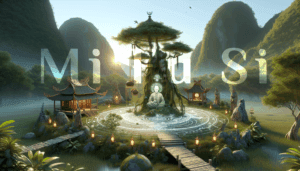
WHY DIVINERS END UP POOR?
WHY DIVINERS END UP POOR? by Hữu-Không on 28 April 2013 - Translated by Huu Khong and edited by Rain9811...
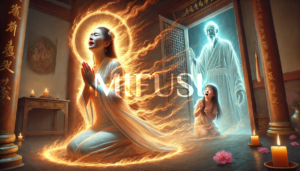
Meeting in the clouds
Meeting in the clouds Ngày đoàn viên By duynguyen on Nov 30, 2017 at 1:10 am, translated by chunglinho, edited...
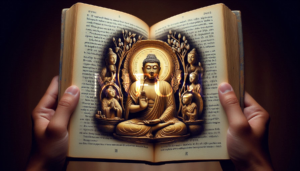
The Manifestation of Master’s sutra: Esoteric Buddhism
The Manifestation of Master's sutra: Esoteric Buddhism Linh Hiển của Mật Tông Phật Giáo Tinh Hoa Yếu Lược Translated by...
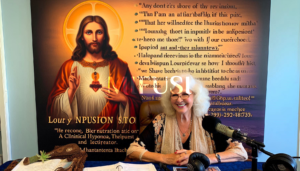
Story 12 – East-West Mystical Encounter
Story 12 -East-West Mystical Encounter Câu chuyện số 12 - Huyền bí Đông và Tây Phương by Hoctro-gia on 12...
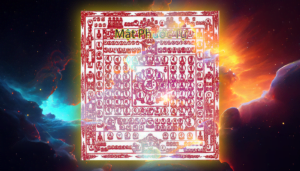
Chapter I: V – MANDALA (Part 5/6)
V. MANDALA: Mandala or 'Dan' or Bodhi Mandala is a complex term. It literally means donation, gift, generosity, or a...
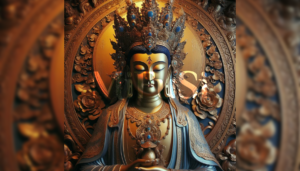
Kwan Shih Yin – compassion Dharani
Kwan Shih Yin - compassion Dharani I shared this picture simply because I find it beautiful, not because of the...
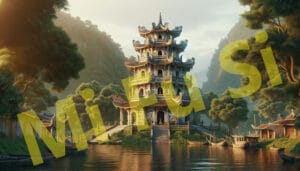
Introduction To Religious Scholar Triệu Phước.
Scholar Trieu Phuoc (born in 1948 in Tra Vinh, Vietnam) is a Tantric guru, has the name Buu Son, Duc...
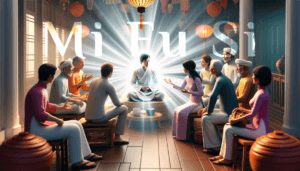
MYSTERIOUS LANGUAGES
MYSTERIOUS LANGUAGES (Chư vị tá khẩu - 3 người nghe ra 3 ngôn ngữ - Sent by Bạch Hạc on...
